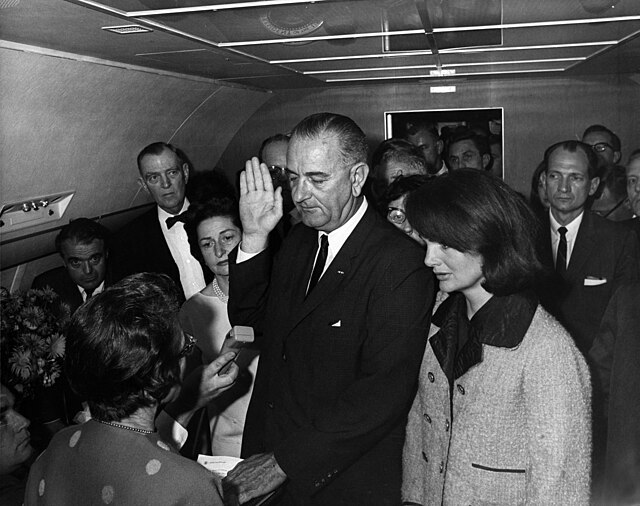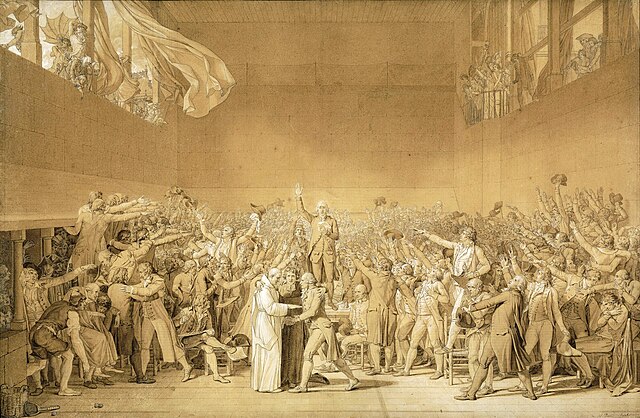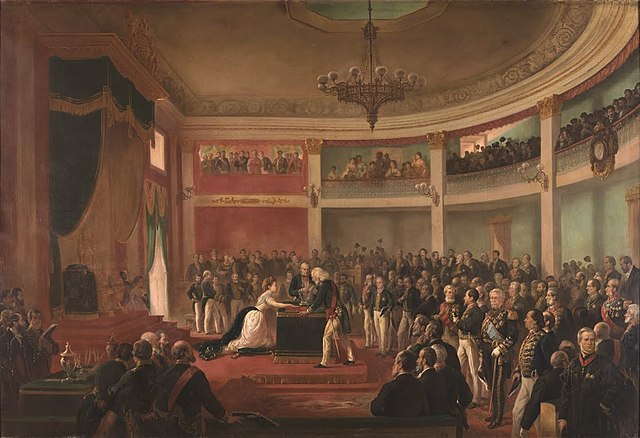An oath of office is an oath or affirmation a person takes before assuming the duties of an office, usually a position in government or within a religious body, although such oaths are sometimes required of officers of other organizations. Such oaths are often required by the laws of the state, religious body, or other organization before the person may actually exercise the powers of the office or organization. It may be administered at an inauguration, coronation, enthronement, or other ceremony connected with the taking up of office itself, or it may be administered privately. In some cases it may be administered privately and then repeated during a public ceremony.
Lyndon B. Johnson taking the American presidential oath of office in 1963, after the assassination of John F. Kennedy
Dilma Rousseff takes the oath of office of the President of Brazil.
Li Keqiang publicly swore an oath to the Constitution upon formally taking office after he was appointed as the Premier in the 1st Session of the 13th National People's Congress.
Hassan Rouhani takes the oath of office as the President of Iran.
Traditionally an oath is either a statement of fact or a promise taken by a sacrality as a sign of verity. A common legal substitute for those who conscientiously object to making sacred oaths is to give an affirmation instead. Nowadays, even when there is no notion of sanctity involved, certain promises said out loud in ceremonial or juridical purpose are referred to as oaths. "To swear" is a verb used to describe the taking of an oath, to making a solemn vow.
Depiction of the legendary Swiss Rütli Oath taken by the representatives of the three founding cantons, declaring unity and freedom in eternal alliance
"Tennis Court Oath" by Jacques-Louis David.
The oath of the provisional triumviral regents of the Empire of Brazil in the Imperial Chapel in 1831, during a period known as the Período regencial.
Isabel, Princess Imperial takes oath as regent of the Empire of Brazil before the Imperial Senate, c. 1870.








